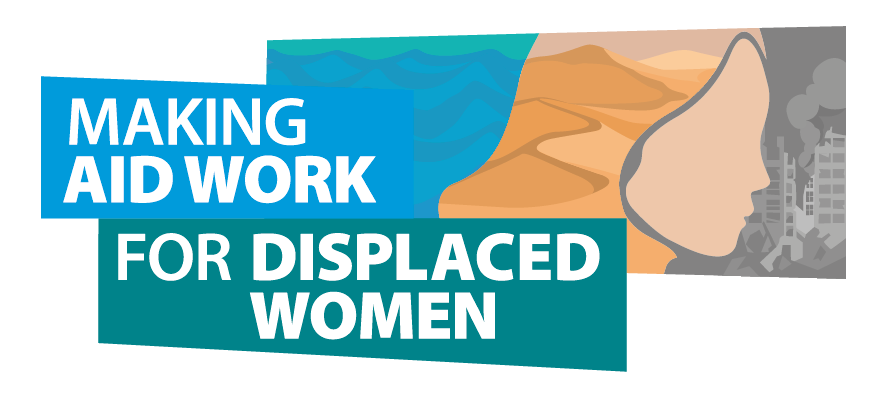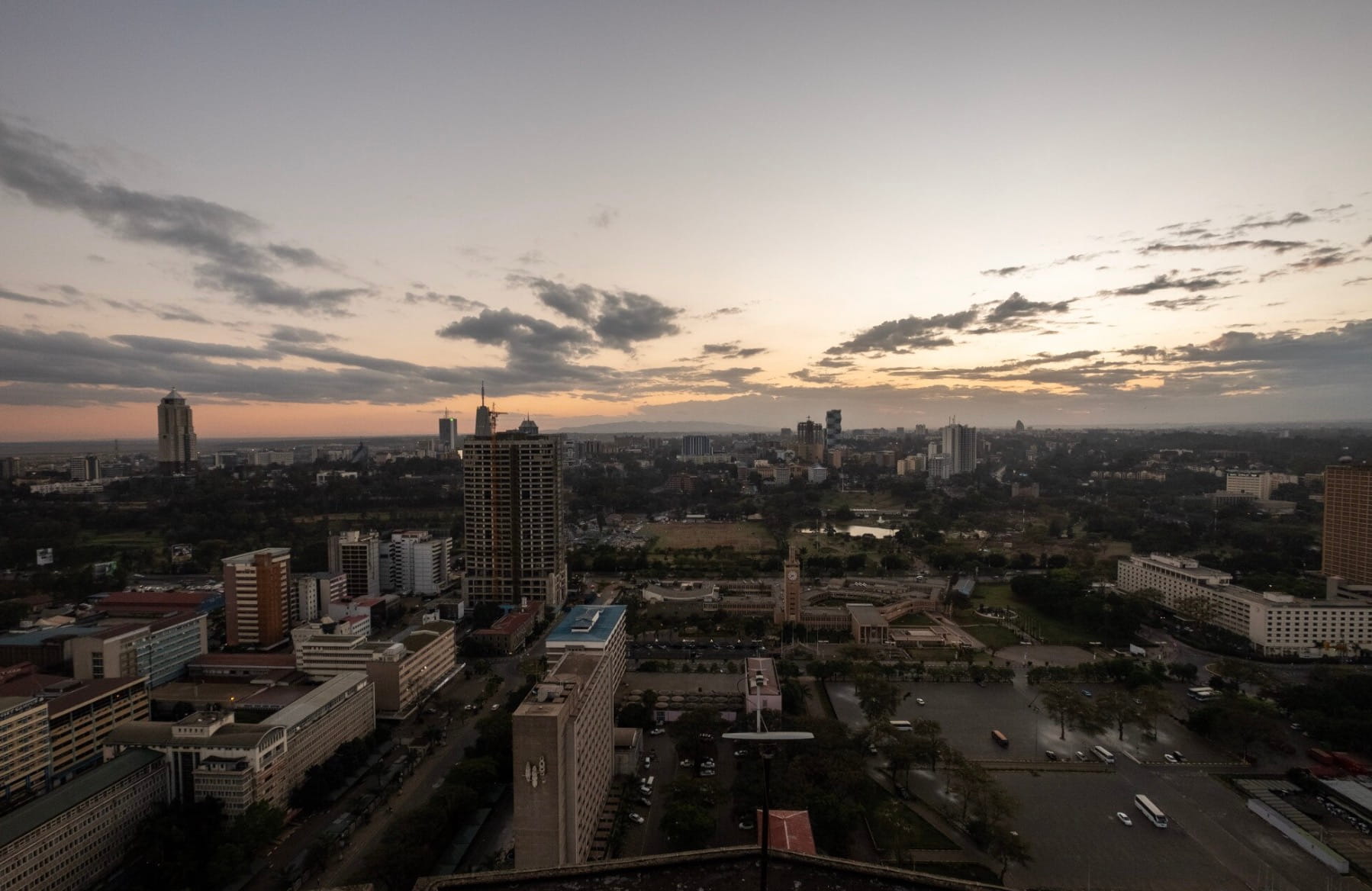
Scoping visit to Nairobi, 7 – 17 April 2026
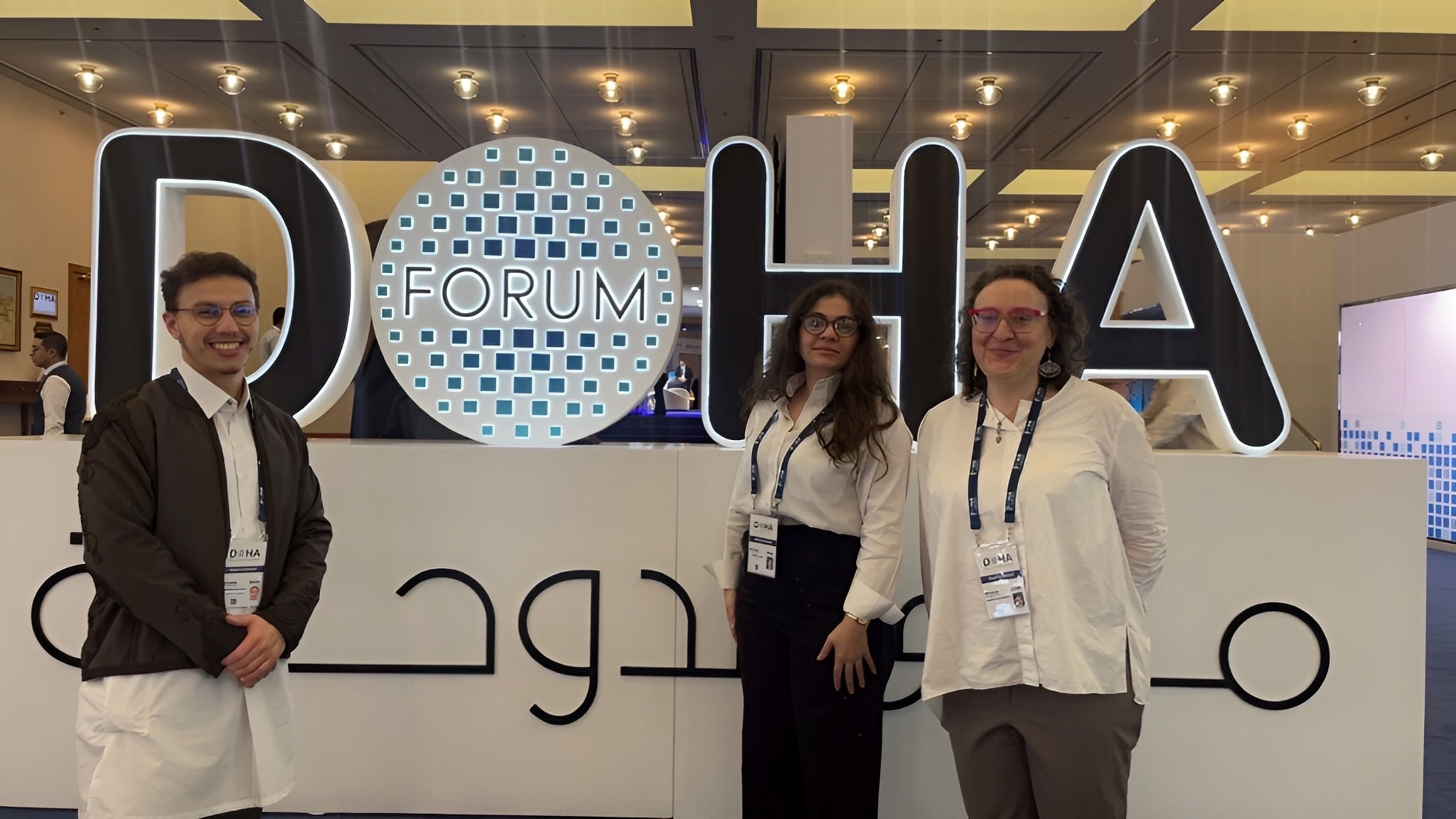
Making Aid Work Team at Doha Forum 2025
From 6–8 December, Qatar hosted the 23rd edition of the Doha Forum, held under the theme “Justice in Action: Beyond Promises to Progress.” Over three days, the Forum featured 128 sessions, 471 speakers, and welcomed 6,500 participants from 170 countries.
The Making Aid Work team joined panels focused on global aid and community trust in humanitarian response, as well as the role of women and faith leaders in peace negotiations and defending international law. Many discussions revolved around the use of AI in humanitarian action, particularly in the context of global aid funding cuts. Experts explored how AI could decentralise systems, reduce bureaucracy and management costs, and advance the localisation agenda.
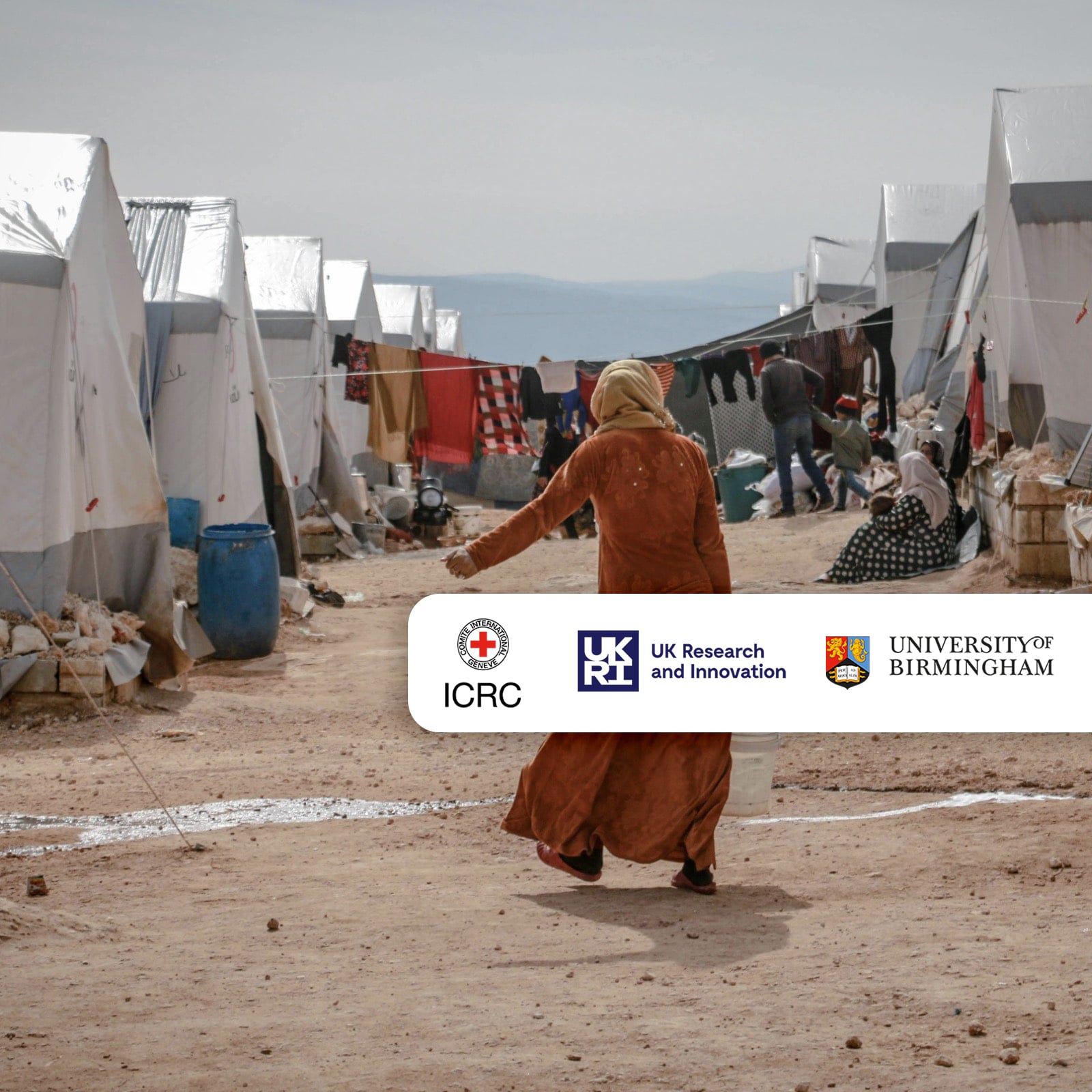
Launch of Policy Dialogue on Pathways to Impact: Engaging with Islamic philanthropy to improve outcomes for displaced women
Register: Click here to register
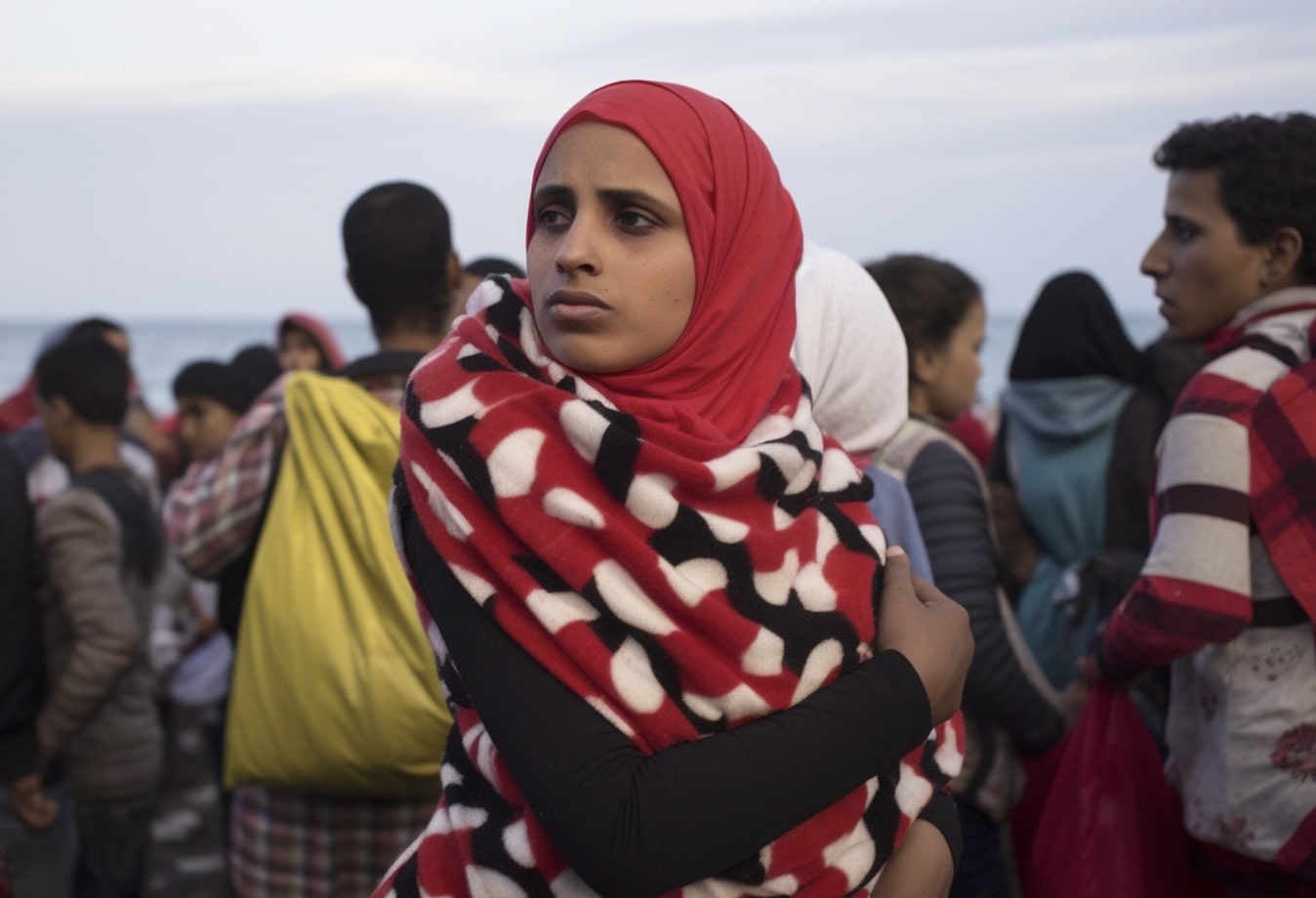
Advancing Humanitarian Innovation Symposium on Gender, Displacement, and Islamic Philanthropy
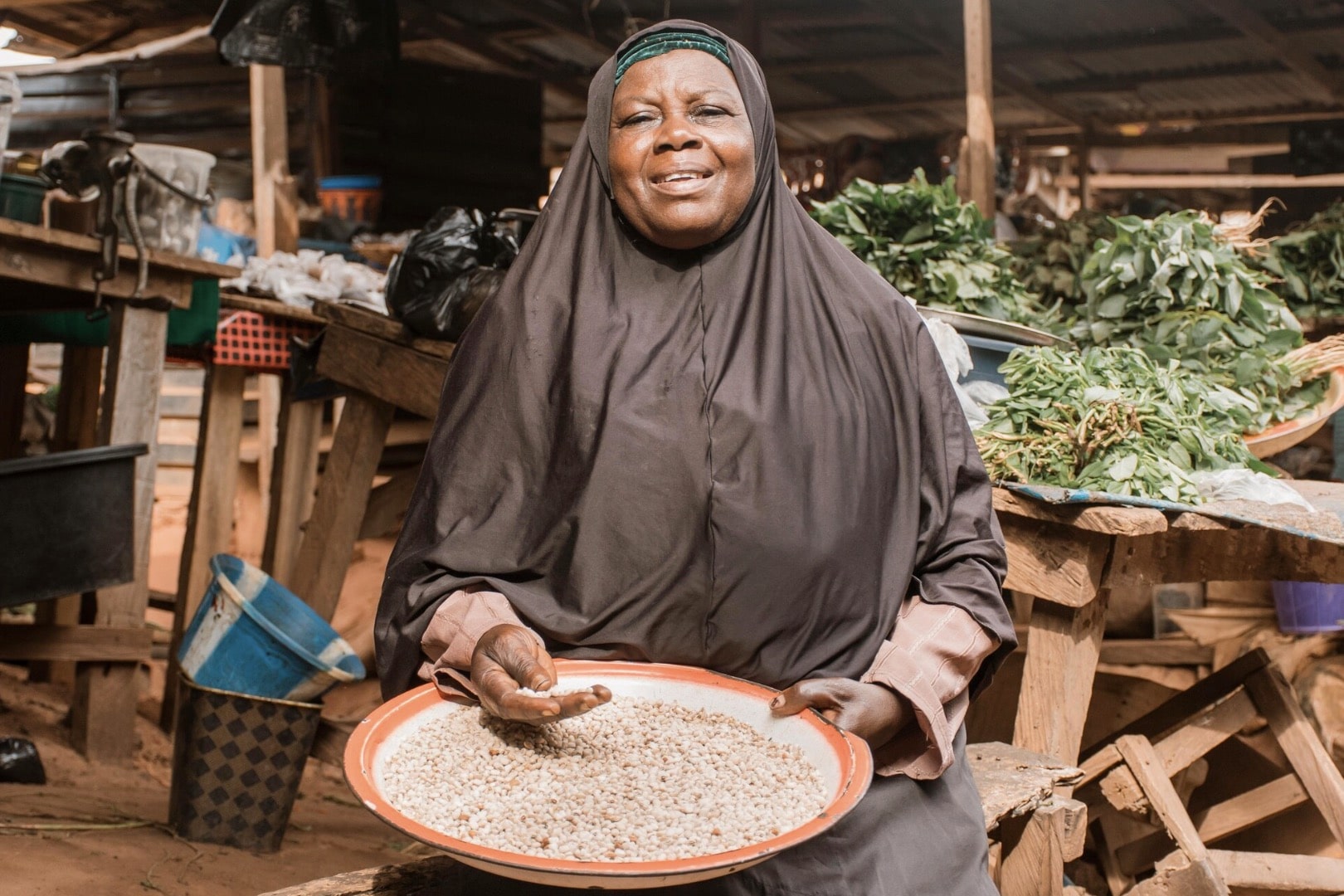
Radio Interview: Dr Sandra Pertek on the Impact of USAID Cuts
In this radio interview, Dr Sandra Pertek – UKRI Future Leaders Fellow, University of Birmingham (IDD) discusses the far-reaching consequences of recent USAID funding cuts on displaced communities and especially women. Dr Pertek highlights the urgent need for gender-sensitive approaches in humanitarian response.
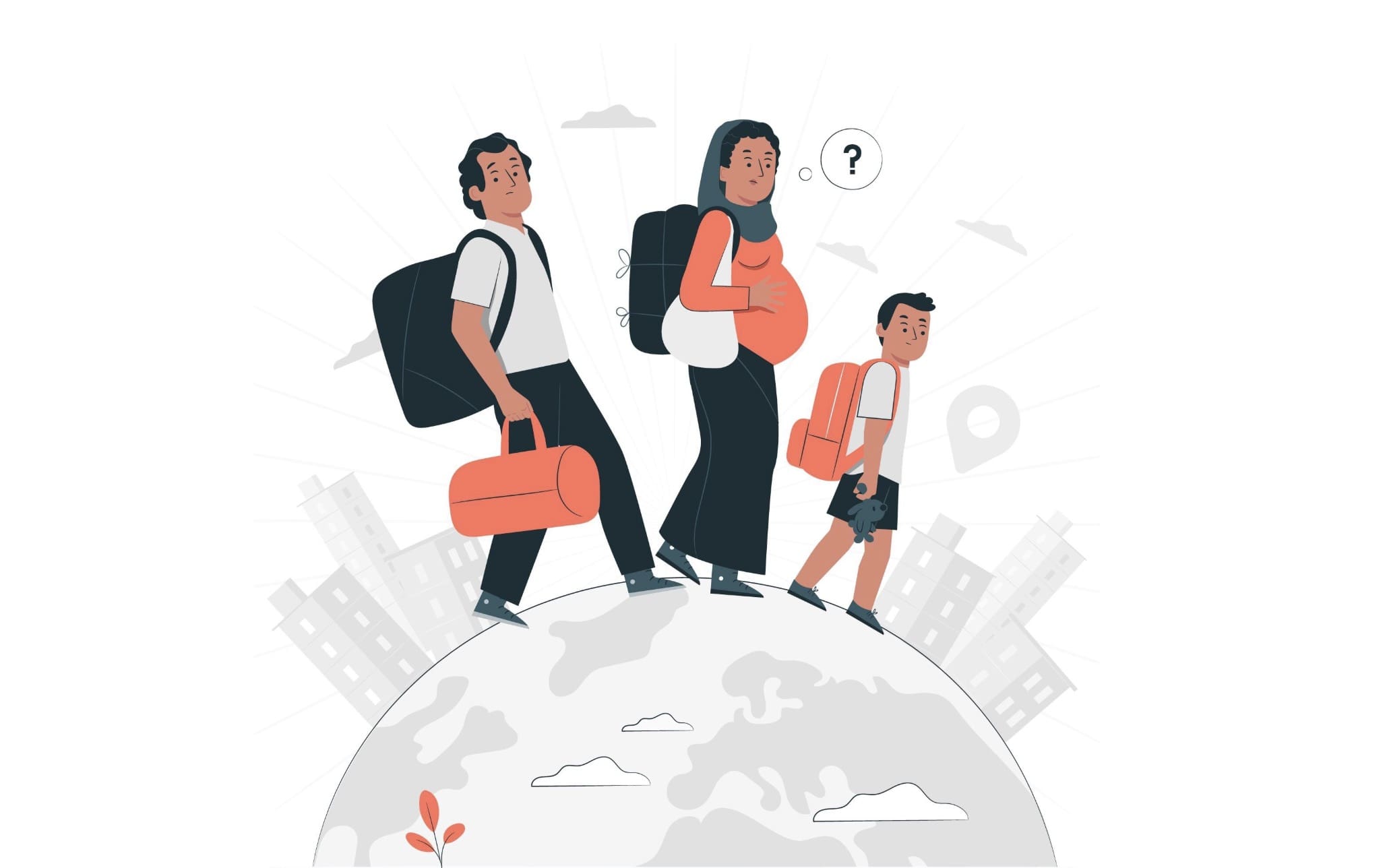
Dr Sandra Pertek’s interview with a local radio in London on the value of migration
In her enlightening interview with a London radio station, Dr. Sandra Pertek delves into the value of migration, exploring its societal and humanitarian significance. She also highlights her pioneering project, Making Aid Work for Displaced Women, which integrates Islamic philanthropy into humanitarian systems to better address the complex needs of displaced women. Listen to Dr. Pertek’s insights and discover innovative approaches to supporting forcibly displaced populations.
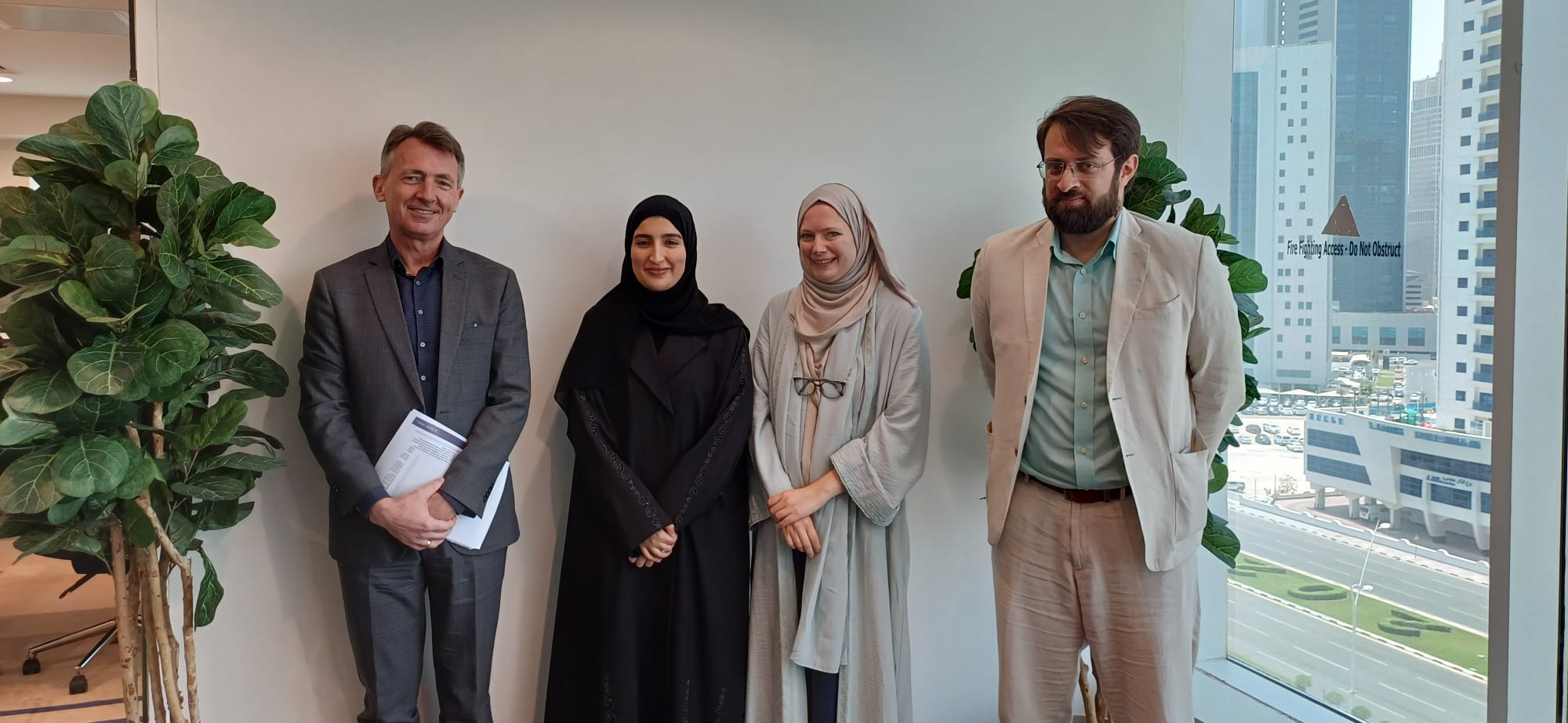
Exchange Visit with Qatar Fund For Development (QFFD)
As part of ongoing efforts to strengthen global partnerships, Dr. Sandra Pertek, Project Lead of Making Aid Work for Displaced Women and Syed Muaz Shah, Associated Researcher, visited the Qatar Fund for Development (QFFD) for an exchange meeting with Mr. Niklaus Eggenberger, Manager of Strategic Planning and Performance, and his team.
QFFD is the central governmental body responsible for developmental funding for the State of Qatar. The conversation focused on shared humanitarian priorities and impact for most excluded social groups. QFFD leads the Women in Conflict Zones Initiative which supports women’s participation in conflict resolution and post-conflict recovery.
Dr. Pertek introduced the Making Aid Work for Displaced Women project, which offers technical assistance to develop women-sensitive funding frameworks. She also invited QFFD to join upcoming humanitarian convenings and policy dialogues in Doha, Geneva, and Birmingham.
The visit concluded with a shared interest in continuing dialogue and exploring future opportunities for collaboration in support of women affected by conflict and displacement.
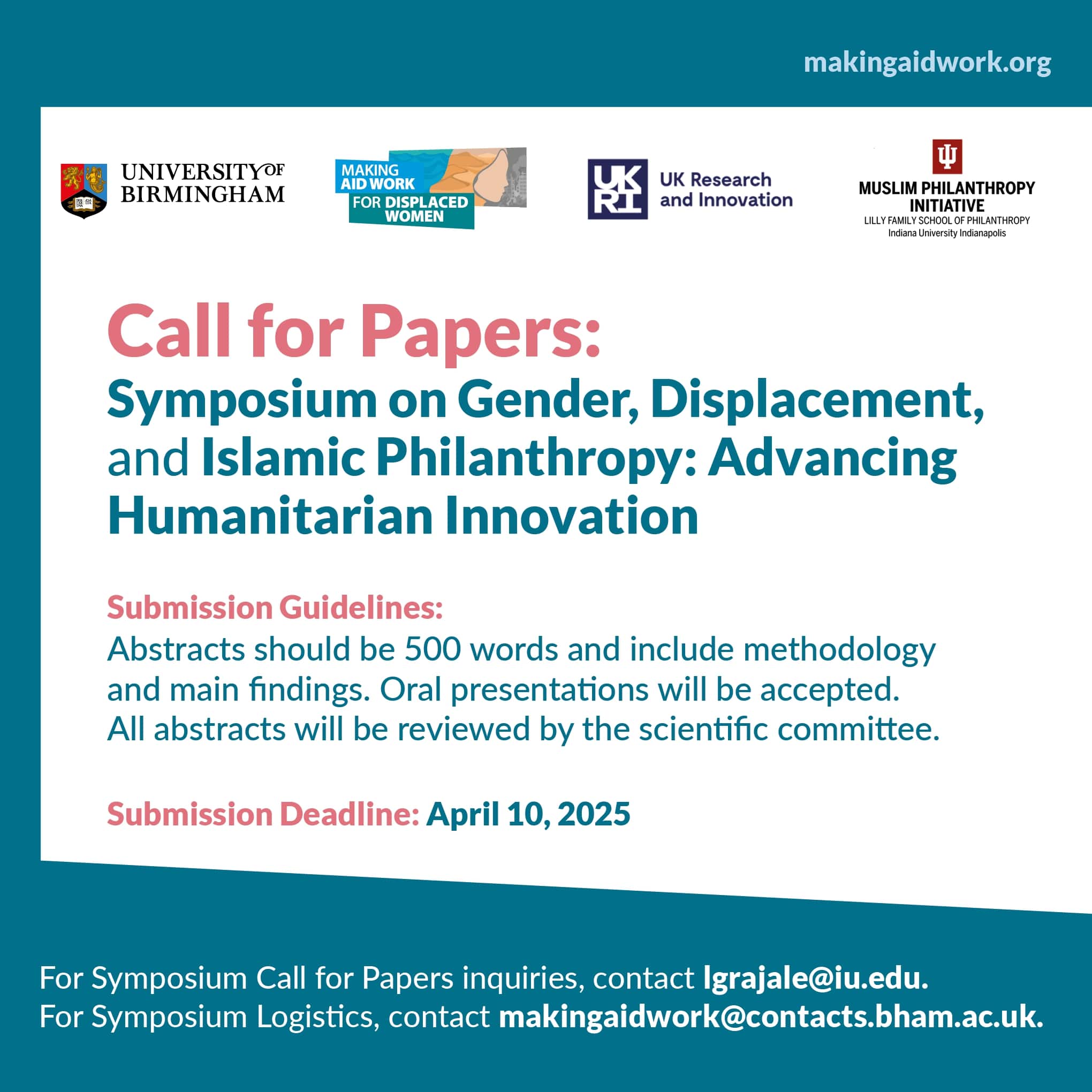
Symposium: Gender, Displacement, and Islamic Philanthropy: Advancing Humanitarian Innovation
Pushing interdisciplinary boundaries and contributing to developing an inclusive humanitarian policy, this symposium aims to mobilise new voices and conceptual resources to build bridges between mainstream humanitarian and Islamic philanthropic approaches to women in displacement and humanitarian crises. Connecting humanitarian, migration and religious systems, the symposium seeks to provide a platform to exchange and discuss innovative conceptual and financing solutions to support displaced women through integrating different aid paradigms.
Register Today: Click here to register
More information: Find more information here
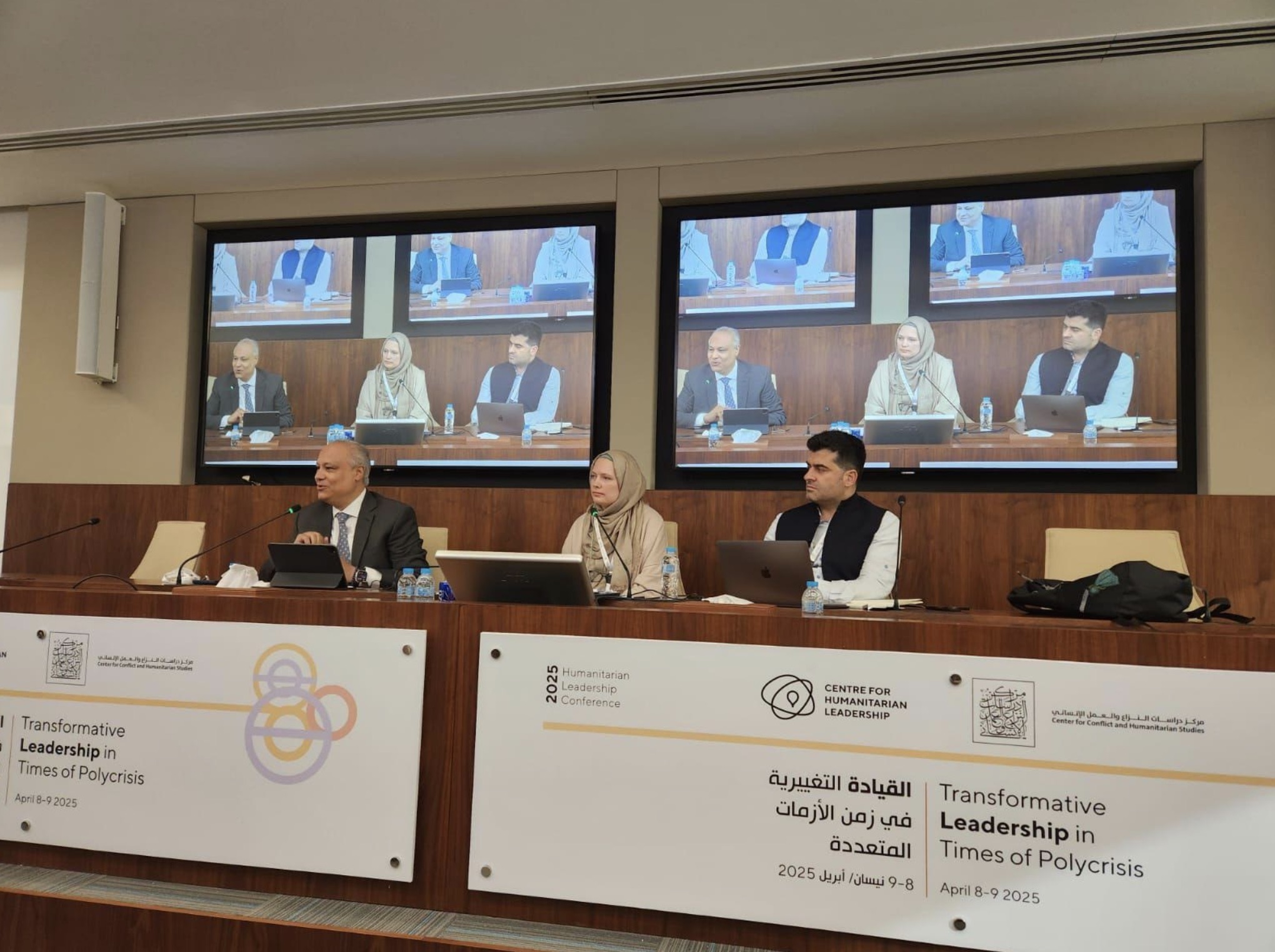
Making Aid Work Panel: Reimagining Philanthropy and Humanitarianism in Times of Polycrisis
At the recent Transformative Leadership in Times of Polycrisis conference in Doha, Dr Sandra Pertek held a panel discussion on the role of Muslim philanthropy in supporting displaced women within the humanitarian system. Co-hosted by the Centre for Humanitarian Leadership, the Center for Conflict and Humanitarian Studies, and Pledge for Change, the conference explored urgent calls to decolonise aid and strengthen local leadership. The panel delivered a sober wake-up call. Dr Khaled Khalifa (UNHCR) emphasised, the global Zakat system is not functioning as it should. If harnessed properly, Zakat could significantly strengthen humanitarian efforts and better support those most at risk.
Key themes emerging from the discussion included the localisation of aid, recognising cultural traditions and values of mutual support. Also, the need to create space for women’s leadership in philanthropic organisations was emphasised, for example by Dr Selman Salim (Turkish Red Crescent) while Dr Prof. Amelia Fauzia (joining online) shared the Indonesian example, where women serve on—and even lead—Zakat boards.
Dr Pertek emphasised the need for continued knowledge exchange, collaborative research, and capacity building to reimagine a more inclusive, faith-sensitive humanitarian system. Despite examples of progress, much more is needed to align Muslim philanthropy with humanitarian priorities.
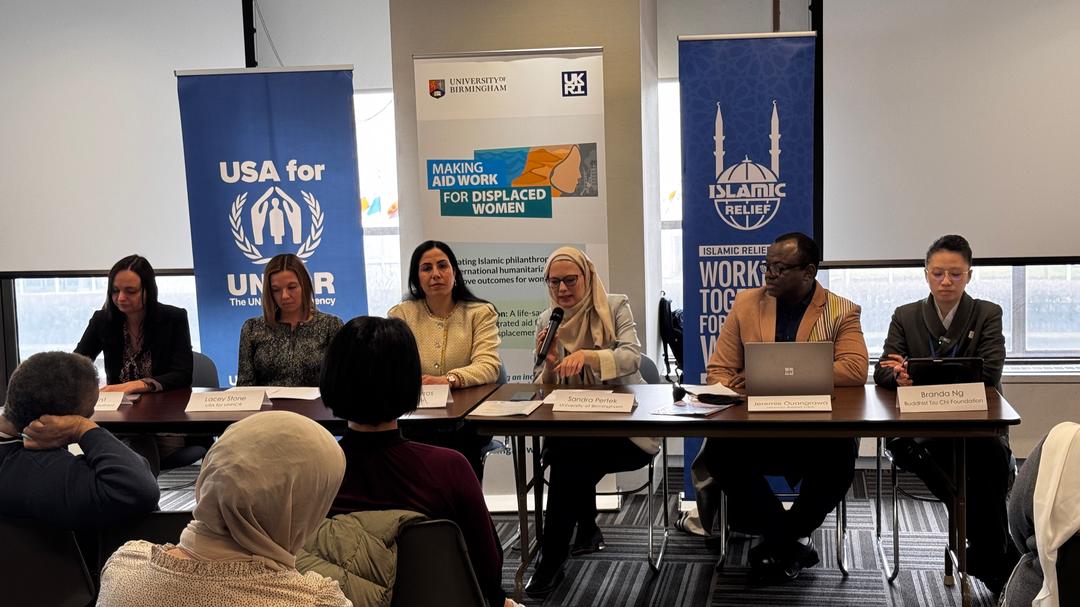
Event on Women on the Move at the premises of the UN Commission for the Status of Women
On 20 th of March 2024, Making Aid Work for Displaced Women co-hosted the event “Women on the Move: Inclusive, Intersectional and Faith-Sensitive Approaches in the Humanitarian Sector” in collaboration with UNHCR, the UN Refugee Agency, and Islamic Relief USA.
The event brought together humanitarian actors, researchers, and philanthropic leaders to reflect on policy developments affecting displaced women and explore how faith influences both their experiences and the responses they receive. Speakers highlighted the need to move beyond generic protection models by recognising the intersecting exclusions faced by displaced Muslim women and ensuring humanitarian responses are culturally relevant and gender-responsive.
This event marked an important step in bridging gaps between secular and faith- based protection approaches and in mobilising support for humanitarian reform grounded in dignity, inclusion, and lived realities.
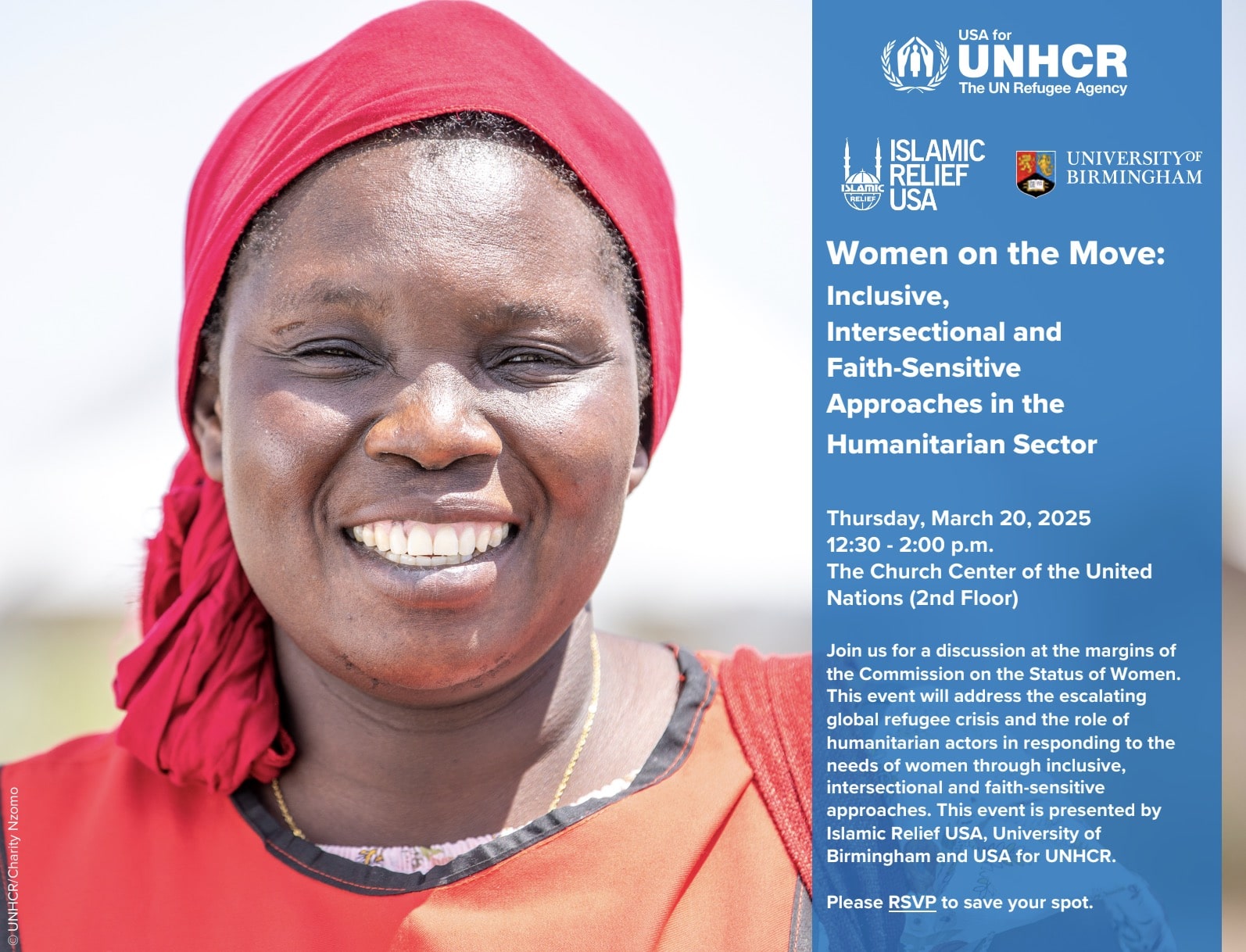
Women on the move: Inclusive, intersectional and faith-sensitive approaches in the humanitarian sector
The workshop will bring together around up to 50 representatives of state departments and international humanitarian organisations, including the UN representatives, INGOs and FBOs, interested in exploring inclusive, intersectional and faith-sensitive potential to advance responses to women in displacement.
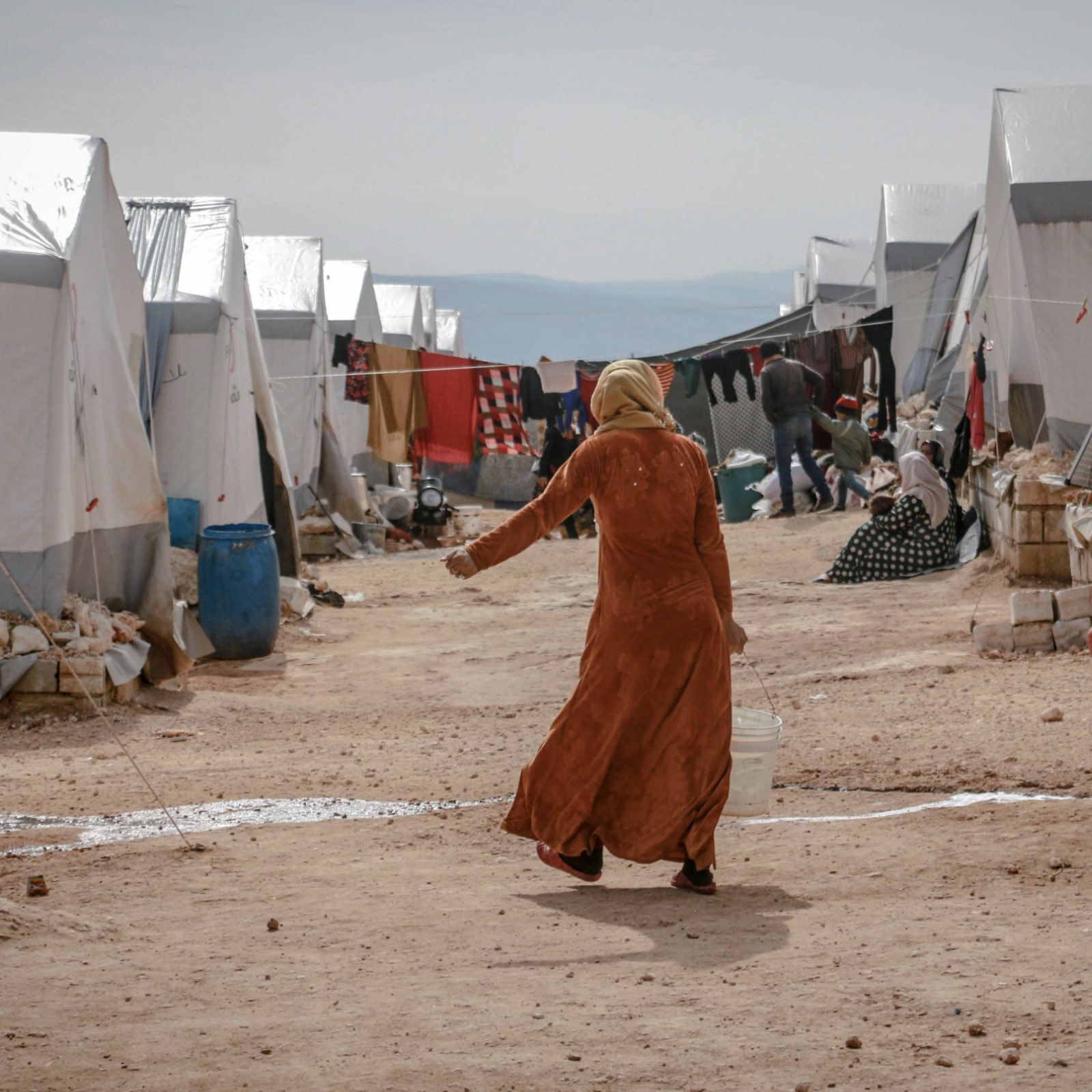
Online Project Launch: Starting a Global Conversation
This event aims to initiate a global conversation on engaging with Islamic philanthropy instruments to support women in conflict and displacement. Moving beyond fundraising, the focus centres on the ethics, delivery, understanding of lived experiences, and cultural proximity needed to effectively address the intersecting needs of displaced women across forced migration routes – on the move, in transit and places of refuge.
